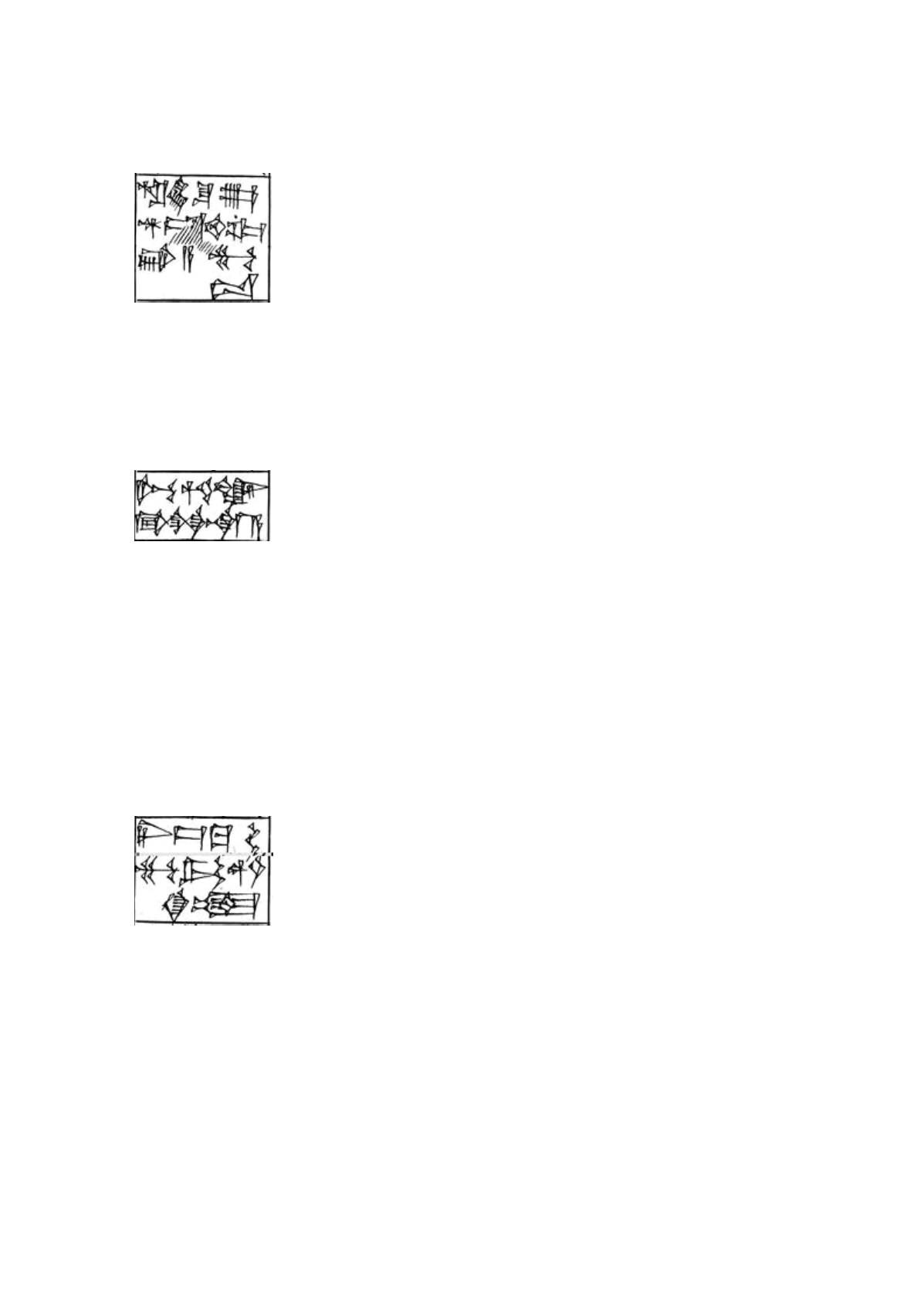

182
Gudea di Lagash – La costruzione del tempio di Ninjirsu - Cilindro A
A XIV.23 - 381
u
5
kug šu.nir d.
[
nanše
]
.kam saj.bi.a mu.gub
u
5
kug [šu.nir
d
Nanše]
.ak.am 3saj.bi.a mu.n.gub
(e) il sacro gallo (?) - esso è lo stendardo di Nanshe - di fronte a loro eresse.
u
5
: “male bird, cock”; cfr. A XIII.24
šu.nir … mu.n.gub : vedi A XIV.18, dove usa una costruzione leggermente diversa, senza la copula
enclitica.
A XIV.24 - 382
gu maš
2
.anše
edin.nala
2
.a
[gu [maš
2
.anše edin].ak la
2
.a
In ‘Rete sospesa per (catturare) gli animali della steppa’
gu : “filet” (PLS.58); “string, thread; wool yarn; flax; hemp; snare; net” (SL)
maš
2
.anše : “animals, livestock ('goats' + 'equids')” (SL); “cheptel” (PLS.98. s.v. maš
2
“chèvre,chevreau”);
Per Falkenstein MAŠ
2
.ANŠE = MAŠ.ANŠE “das Getier”, “animali, bestie” (GSG1.27); anche PDS2.
165 pone MAŠ
2
.ANŠE e MAŠ.ANŠE sotto la stessa voce mašanše “animals, livestock”
edin.ak: con marker del genitivo; potrebbe anche leggersi edin.a “nella steppa”, con marker del locativo
(GSG2.108); edin (eden) : “steppe, plain; grazing land between the two long rivers; back, spine” (SL);
“steppe, plaine herbue; dos, épine dorsale; contre” (PLS.45); per il segno edin, vedi MEA.168
la
2
.a : “ausgebreitet”, participio (GSG1.143) del verbo la
2
: “porter, lever, soulever; placer, mettre en place;
attacher; harnacher; diminuer” (PLS.91), “to bind, to harness” (with .ši, TSL.310)
A XIV.25 - 383
ni.is.kubir
3
mu.tuku bir
3
d.utu
ki.aj2
ni.is.kubir
3
mu.tuku bir
3
d
Utu.e ki.aja
2
.a
(e) ‘Scelti destrieri, famosa pariglia, pariglia amata da Utu”,
ni.is.ku: “choice; a class of persons or animals; fine steed (from Akkadian
nisqum
)” (SL)
bir
3
[ERIM, EREN
2
] : “team (of donkeys/animals)” (SL)
mu.tuku : vedi A VI.25
d
Utu.e : col marker dell’ergativo
ki.aja
2
.a : vedi A VI.22; si tratta di una
costruzione Meshanepada
(“che Utu ha amato, ama”; GSG1.136; cfr.
A II.5)
















